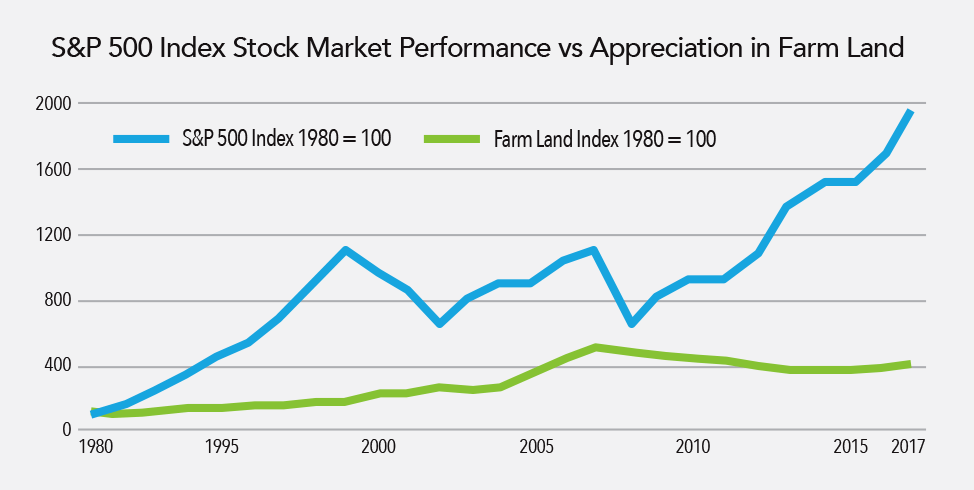Recreation Land as an Investment
For some people land ownership is a desire that resonates from somewhere within their inner being—to the point that, owning the land moves from a vision to reality. It’s something that is hard to explain to folks who have little interest or desire to ever own real estate beyond the house they live in or a condo where they spend their vacations. Owning rural real estate has some attractive advantages, but there are some important considerations before you jump in and become an owner. You don’t have to be a real estate expert to get started—you just have to be armed with enough knowledge to ask the right questions and to know when to seek appropriate professional guidance. Let us help.
You don’t have to be a real estate expert to get started.
The first question—is rural lifestyle land a good investment? The answer is sometimes and it depends. Land is an asset class unique to itself and things such as location, property type, soil quality, existence of water rights, income generating capacity, and a whole host of other things that ultimately determine its investment performance. So, not only does the utility of the land play into its investment potential, but the price does, as well. For multi-purpose real estate—real estate that is attractive to both recreational and rural lifestyle buyers—here are some additional questions that might arise in the course of making a purchase decision.

When considering rural real estate as an investment, the return is generally going to lag that of certain other asset classes such as equities—common stocks, mutual funds, Exchange Traded Funds, and so forth. Take a look at historical trends for the S & P 500 stock index and the Georgia aggregate farm land values index since 1980. Clearly, money invested in the S & P 500 stock index over time has outperformed that of the appreciation of farm land, not taking into account income produced from the land. In fact, the average annual rate of return for the period 1980 – Nov 2017 equated to 10.1% for the S & P 500 stock index. In comparison, over the same time period, farm land averaged 5.8% annually. On the other hand, some people are not comfortable with the degree of volatility found within the stock market, nor do they want all of their eggs in one basket. In these cases, farm land, or real estate in general, provide a certain degree of safety in relation to the volatility found in certain other asset classes.
Obviously, if purchased “below market value,” your return over time would be enhanced; however, unless the market is severely depressed this seldom happens. There are still other considerations before you make that purchase. While land does not depreciate like physical structures, infrastructure such as roads, culverts and drainage systems do depreciate over time and can require costly maintenance to upkeep. Likewise, there are property taxes and insurance costs annually, making the ownership cost more than just the initial cost. Therefore, while your tract of land could very well be appreciating, the cash outlays can be burdensome.
Another aspect of owning physical real estate in comparison to readily marketable financial assets is the time it takes to convert real estate into cash. This can be circumvented by investing in a real estate backed asset such as a Real Estate Investment Trust (REIT), which affords the ability to convert to cash quickly.
Income Potential
There are things you can’t do with a stock or bond portfolio.
On the other hand, many rural properties do have income potential. Things like hunting leases, standing timber or leasing farm or pasture land can all bring in some degree of income. Additionally, timber and ongoing farming activities can often enable property taxes to be reduced. So, the income potential, coupled with the long term appreciation of the property, could provide an investment that meets your objectives.
Property Usage
So where does that leave the question as to whether or not rural recreational real estate ownership is a candidate as an investment? Well, there is still one more consideration that has to be factored into the equation. That is the actual purpose of why you desire to be a rural real estate owner. In many cases, the purpose centers around wanting to use the property in some form or fashion. It might be hobby farming, hunting or just relaxing in a serene environment away from urban distractions. These are things you can’t do with a stock or bond portfolio. Plus, there is a certain degree of satisfaction of owning rural estate and providing the stewardship and care that comes with land ownership.
In the end, there is no one answer as to the degree farm or recreational land should be considered an appropriate investment in your portfolio. In plain financial terms it depends on the degree you desire stability in your asset portfolio versus reward or return on your assets. Stocks as an asset class have demonstrated higher returns over time, but with a much greater fluctuation in value points along the way. If you are unsure, you should probably speak with an investment advisor or similar professional to understand your options and implications.